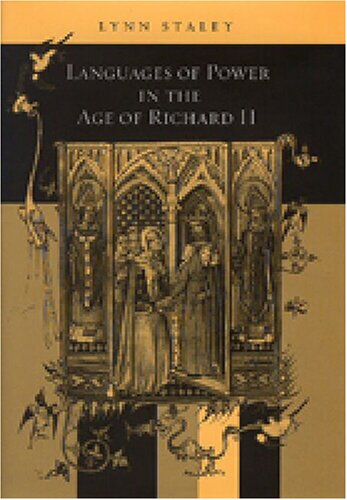

Most ebook files are in PDF format, so you can easily read them using various software such as Foxit Reader or directly on the Google Chrome browser.
Some ebook files are released by publishers in other formats such as .awz, .mobi, .epub, .fb2, etc. You may need to install specific software to read these formats on mobile/PC, such as Calibre.
Please read the tutorial at this link: https://ebookbell.com/faq
We offer FREE conversion to the popular formats you request; however, this may take some time. Therefore, right after payment, please email us, and we will try to provide the service as quickly as possible.
For some exceptional file formats or broken links (if any), please refrain from opening any disputes. Instead, email us first, and we will try to assist within a maximum of 6 hours.
EbookBell Team

0.0
0 reviewsIn this book the distinguished medievalist Lynn Staley turns her attention to one of the most dramatic periods in English history, the reign of Richard II, as seen through a range of texts including literary, political, chronicle, and pictorial.
Richard II, who ruled from 1377 to 1399, succeeded to the throne as a child after the fifty-year reign of Edward III, and found himself beset throughout his reign by military, political, religious, economic, and social problems that would have tried even the most skilled of statesmen. At the same time, these years saw some of England?’s most gifted courtly writers, among them Chaucer and Gower, who were keenly attuned to the political machinations erupting around them.
In Languages of Power in the Age of Richard II Staley does not so much ''read'' literature through history as offer a way of ''reading'' history through its refractions in literature. In essence, the text both isolates and traces what is an actual search for a language of power during the reign of Richard II and scrutinizes the ways in which Chaucer and other courtly writers participated in these attempts to articulate the concept of princely power. As one who took it upon himself to comment on the various means by which history is made, Chaucer emerges from Staley?’s narrative as a poet without peer.